This is an archive of information released in the past.
Disclaimer: It may contain broken links or outdated information. Some parts may not function in current web browsers.
*Visit https://humans-in-space.jaxa.jp/en/ for the latest information.

TOPICS
ISS R&D Conference 2018
ISS Research & Development (R&D) Conference 2018 was held on July 23 to 26, 2018 at San Francisco. JAXA is participating this conference every year.
「ISS R&D Conference 2018」 Results
| Date | July 23(Mon.)-26(Thur.), 2018 |
|---|---|
| Venue | San Francisco, CA, USA |
| Host | NASA, CASIS(*1), AAS(*2), and 25 sponsors companies |
| Participants | More than 900 people participated in total |
※1 CASIS: The Center for the Advancement of Science in Space
※2 AAS: American Astronautical Society
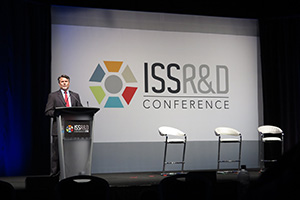 |
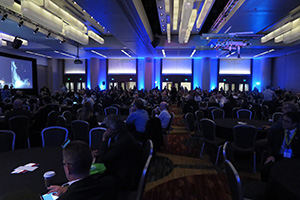 |
Major main sessions
ISS Transition and the Commercialization of LEO - A Government Perspective
| Audience | Approx. 150 people |
|---|---|
| Panelist |
|
| Overview |
Government agencies introduced their approaches to ISS Transition and low Earth orbit (LEO) commercialization, discussing activity plans and problems for operations, research, and development in LEO. Scimemi, ISS Director, NASA commented on ISS commercialization, "NASA itself has not yet fully decided what to do with the ISS program in the future and the international partnership which has been built until today. However, in the end, we will work toward operating an on-orbit platform to continue research and development in LEO with private investment." |
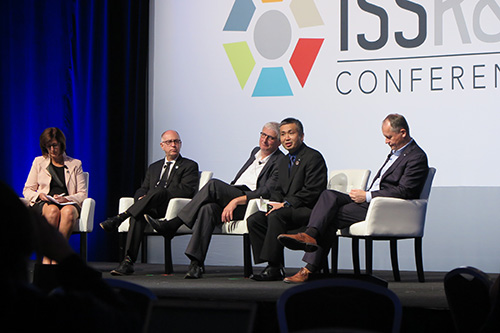
Updates on U.S. Civil Space Policy
| Audience | Approx. 150 people |
|---|---|
| Panelist |
|
| Overview |
Upon the three consecutive issuance of Space Policy Directive by President Trump during six months from the end of last year (on Dec. 11, 2017, May 24, and June 18, 2018), panelists in the session discussed the trend of space policies. |
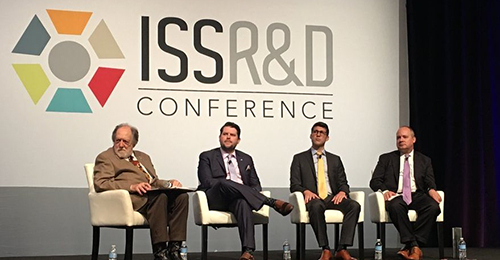
Technical Session
【Activities by JAXA】
Japan made six presentations on "Kibo" utilization at Technical Session, (five presentations by JAXA and one by experiment proposer) and disseminated the information on JP-US OP3 cooperation along with outcomes of "Kibo" utilization, which drew participants' attention to the outcome and future prospect and had a question-and-answer session about the following.
- "Kibo" utilization strategy and its result
- The overview of the Electrostatic Levitation Furnace (ELF) and its experiment result
- Approach in onerous Exposed Facility (EF) utilization
- Outline of the Drug-design supporting platform and its experiment result and service
- Overview of Int-Ball and future human space technology development plan
- Result of the first mission using Mouse Habitat Unit (MHU)
【Exhibit】
- At the venue, experiment unit models and explanatory panels of utilization service were on display at JAXA booth for three days and JAXA personnel introduced "Kibo" utilization to visitors.
- Space agencies except JAXA, such as NASA and DLR had displays, while private companies, including many ventures such as Sierra Nevada Corporation and NanoRacks as well as Boeing, Lockheed Martin and Airbus, long-established aeronautics companies had displays at their booths (31 in total).
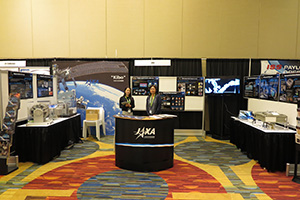 |
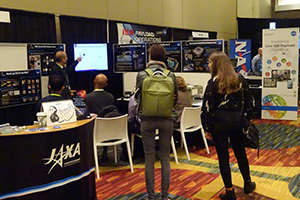 |
|
JAXA booth |
Short lecture at JAXA booth |
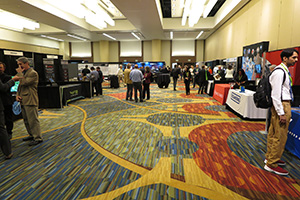 |
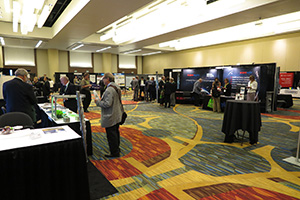 |
|
Exhibit area |
|
【Two Japanese teams win 2018 ISS Award for Compelling Results!】
The experiment using Mouse Habitat Unit (MHU) and the result of CALET's high energy cosmic-ray observation by JAXA were highly evaluated and won 2018 ISS Award for Compelling Results. Japan has been awarded for experiment results for three consecutive years. This year, Japan received two among the seven awards.
※Photo credits: All photos are credited to the JAXA, unless otherwise indicated.
| Copyright 2007 Japan Aerospace Exploration Agency | Site Policy |